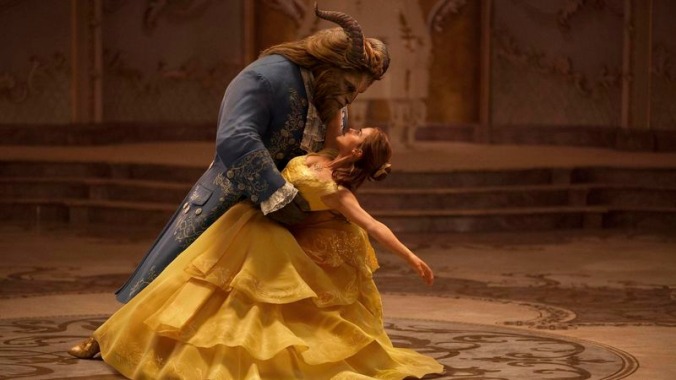Disney’s Beauty And The Beast remake misunderstood everything great about the original
Aux Features Beauty and the BeastWhen she’s not using the Transformers franchise to explain the basic tenets of film theory (no really, it’s a great series), video essayist Lindsay Ellis is busy establishing herself as one of our foremost interpreters of Disney films. Ellis has both a personal passion for and a scholarly interest in Disney’s artistic output and its history as a company. And she puts all that knowledge to good use in this new 36-minute video essay about the 2017 live action Beauty And The Beast remake. Jokingly subtitled “Thanks! I hate it,” the video explains not just what’s wrong with the remake, but specifically why Disney made those bad choices.
Ellis points out that the recent trend in live-action Disney remakes is to provide a metatextual commentary on their source material. But where that worked okay for 2014’s Maleficent and 2016’s The Jungle Book, Ellis argues the Beauty And The Beast remake got too caught up in fixing nitpicks and “plot holes” from the original 1991 animated film that weren’t actually problems to begin with. Thus, the film shoves in a whole bunch of unnecessary backstory, over-explains its plot, and adds new elements that never really go anywhere. Most egregiously, the remake attempts to insert some positive feminist messaging but somehow winds up being less feminist than the animated original. In the 1991 film, the Beast is inspired to deal with his anger issues and work to become a better person (er, beast) after spending time with Belle. In the remake, he just negs her until she falls in love with him.
Ellis digs into a whole bunch of other topics as well, including the gay “representation” of LeFou and the bizarre way the remake erases the animated film’s smart social commentary by trying to make Gaston more sympathetic. But the essay isn’t just a list of complaints; Ellis also ties in the remake’s choices to the larger money-first ethos championed by both current Disney CEO Robert Iger and his predecessor Michael Eisner. And she raises some concerns about how that ethos will impact pop culture moving forward, as Disney continues to become more and more of a cultural monolith. For more of Ellis’ thoughts on Beauty And The Beast, she previously released this great video essay explaining why the animated film doesn’t actually romanticize Stockholm Syndrome, despite that being a frequent complaint lodged against it.
Send Great Job, Internet tips to [email protected]
